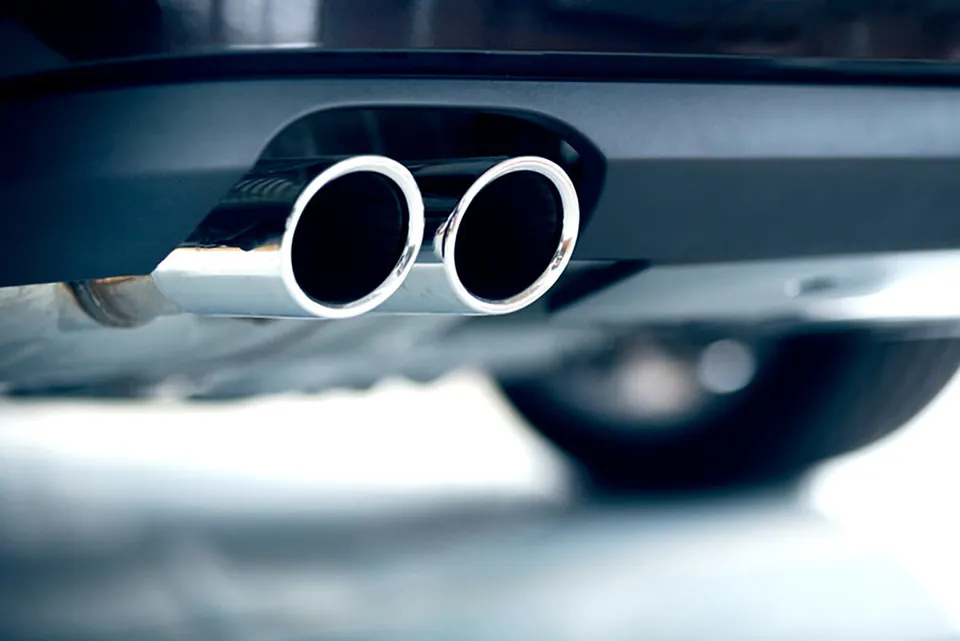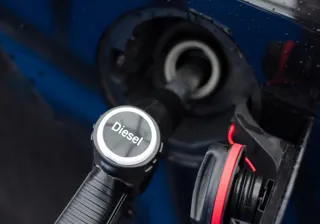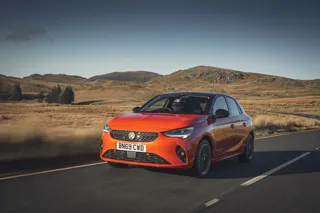Once the fuel of choice for the company car driver, diesel’s dominance among fleets has been on the wane for some time.
Its reputation tarnished and the attraction of tax-busting hybrid and battery electric vehicles (BEVs) difficult to ignore, numbers have continued to dwindle.
Industry leaders say they cannot see a way back for the embattled fuel and this is despite diesel beginning its fightback last year, when the first cars complying with the latest emissions standard began joining UK fleets.
Cars qualifying for the so-called RDE2 standard do not attract the 4% diesel company car tax surcharge, while fleets benefit from not having to pay the higher first-year rate of VED.
Shaun Sadlier, head of consultancy at Arval UK, says the savings from choosing a RDE2 diesel company car can run into “thousands of pounds” over a typical three-to-four-year lease contract.
“Fleets operating RDE2 cars also benefit from lower Class 1A NICs and first-year VED costs in comparison with a non-compliant model,” he said.
Mercedes-Benz, Jaguar Land Rover (JLR) and BMW were among the first to offer RDE2 cars. Rob Morris, national fleet operations manager, at Mercedes-Benz, says that its RDE2-compliant engines were a “popular choice” with customers.
All Mercedes-Benz cars produced from this month (June) will meet the stricter standard.
Vauxhall has become the first volume manufacturer to offer the emissions standard across its range.
James Taylor, general sales director at Vauxhall, told Fleet News: “That means all new Vauxhalls avoid the 4% diesel surcharge on benefit-in-kind (BIK), offering savings to our customers of up to £22 and £43 per month for 20% and 40% taxpayers, compared with the same (non-compliant) models.”
STRICTER LIMITS
The on-the-road Real Driving Emissions (RDE) test was introduced alongside the new emissions testing regime, the Worldwide harmonised Light vehicle Test Procedure (WLTP), in two stages.
RDE1 was introduced in September 2017 for new car type approvals and applied to all new car registrations from September, last year. Vehicles compliant with this standard are designated Euro 6d-Temp. The stricter RDE2 standard came into force from January for new type approvals and will be applicable to all new cars, which will be labelled Euro 6d, from January 2021.
Cars certified to RDE1 (Euro 6d-Temp) must emit less than 2.1 times the Euro 6 NOx limit of 80mg/km for diesel and 60mg/km for petrol engines. This conformity factor tightens to 1.43 times for RDE2-compliant (Euro 6d) vehicles.
In 2023, it’s expected conformity factors will be removed, aligning laboratory and on-road emissions limits.
Alongside Vauxhall, other Groupe PSA brands have become RDE2-compliant, including all Citroën and DS diesel models, plus the majority of Peugeots now also meet the stricter emissions standard.
RDE2 models include all 1.5-litre and 2.0-litre BlueHDI-powered Citroëns and DSs, with manual and EAT8 automatic transmissions.
BlueHDi versions of the Peugeot 3008 and 508 have also qualified, along with the new 208 and 2008.
Martin Gurney, who is responsible for fleet and used vehicle sales for Peugeot, Citroën and DS in the UK, says Groupe PSA has been “working hard” to ensure its vehicles are compliant ahead of schedule.
He added: “These early announcements should reassure customers that we are committed to engineering clean and efficient powertrains for all drivers. The fact that most of our diesel models already meet the forthcoming RDE2 standards speaks volumes about the development that goes into our engines.”
BMW continues to add RDE2 models, while Hyundai says it will add further RDE2 engines to its line-up to join the i10, later this year.
Other manufacturers, such as Audi, Škoda, Renault and Kia, which do not currently have any RDE2 cars, say launches in the second half of the year will see compliant models come through.
But will a wider choice of cars, which avoid the 4% surcharge, be enough to halt the demise of diesel?
DIESEL’S DECLINE
The leasing industry is reporting growing interest from savvy fleets, but all admit the focus is shifting to zero emission motoring.
Figures from the Fleet News FN50 show that the proportion of diesel cars on the FN50 fleet – the UK’s top 50 leasing companies by risk fleet size – fell from almost two-thirds (63.4%) to almost half (50.5%) in 2019.
In terms of vehicles they had ordered, the flight from diesel was still more pronounced. Almost half of the cars ordered last year were petrol (47.6%), while only two-fifths (38.8%) were diesel.
Jon Lawes, managing director of Hitachi Capital Vehicle Solutions, has seen a growing fleet interest in RDE2 diesel cars.
However, he says this is when there is a direct comparable alternative available for the model they want.
He explained: “WLTP has been responsible for the wholesale rise of CO2, irrespective of RDE categorisation, and, therefore, we’ve seen a continued negative shift in perception of diesel vehicles.”
WLTP CO2 values for company cars registered after April 6, which are typically higher than those derived from the old emissions testing regime for comparable vehicles, are now used for tax purposes.
Their use has coincided with a new company car tax regime to try to take account of the hike in emissions, which also includes a new zero percentage rate for battery electric vehicles (BEVs).
PLUG-IN INCENTIVES
Lawes says he expects a “continuing overall decline” in diesel market share as more fleets opt for plug-in hybrid or BEV alternatives.
However, he did offer a glimmer of hope for diesel powertrains. “We expect RDE2 models will cause this decline to plateau as this will provide a favourable cost-effective option for some sectors and drivers.”
David Bushnell, principal consult-ant at Alphabet (GB), said: “For those high mileage drivers, where diesel is still probably the number one choice for fleets, the selection of an RDE2 vehicle will clearly make sense in terms of personal taxation and national insurance costs.
“It’s also an existing technology that many drivers are comfortable using. But, even here, we’re seeing mild hybrid technology coming in to reduce drivetrains’ CO2 output.”
However, he says the “clear additional tax benefits” for choosing plug-in hybrid and battery electric vehicles, revealed in the Budget, will prove hard to ignore.
Chris Chandler, principal consultant at Lex Autolease, has seen a similar trend. He said: “The cost savings and environmental benefits of a plug-in hybrid or full electric alternative are more attractive at the moment.
“The main question we’re being asked by fleets on a daily basis is how they can start – or accelerate – their transition along the ‘Road to Zero’.
“The availability of RDE2 vehicles and how to optimise diesel fleets seems to be far lower down fleet managers’ agendas.”
GROWING INTEREST
Chandler’s comments appear to be backed up by the results of a recent Energy Saving Trust survey.
It revealed that one-in-three UK fleet managers expect half of their company car fleet to be electric by 2025, and seven-in-10 fleet managers are preparing to buy an electric car within two years.
Matthew Walters, head of consultancy and customer data services at LeasePlan UK, said: “From our conversations with fleet managers, it’s evident WLTP is still the main consideration when it comes to compliance-related tax savings and how this impacts the vehicle selection process.”
He expects sales of internal combustion vehicles (ICEs) to fall as electric vehicles become more available and increasingly affordable.
Lex Autolease has seen a significant increase in demand for plug-in hybrid and full electric vehicles over the past 12 months, especially since the 0% BIK tax announcement.
Chandler says a “good awareness” of wholelife costs in the market is driving the shift towards low and zero-emission driving.
He said: “Rather than pay 25-30% tax on a RDE2-compliant diesel vehicle, company car drivers seem to be more focused on taking advantage of the tax benefits of plug-in hybrid and pure electric cars.”
As a result, the UK’s largest vehicle leasing company, Lex Autolease, says it doesn’t anticipate increased availability and understanding of RDE2-compliant models will significantly slow the decline of diesel.
Chandler added: “RDE2-compliant models will simply account for a growing proportion of the existing diesel market.”






















Login to comment
Comments
No comments have been made yet.